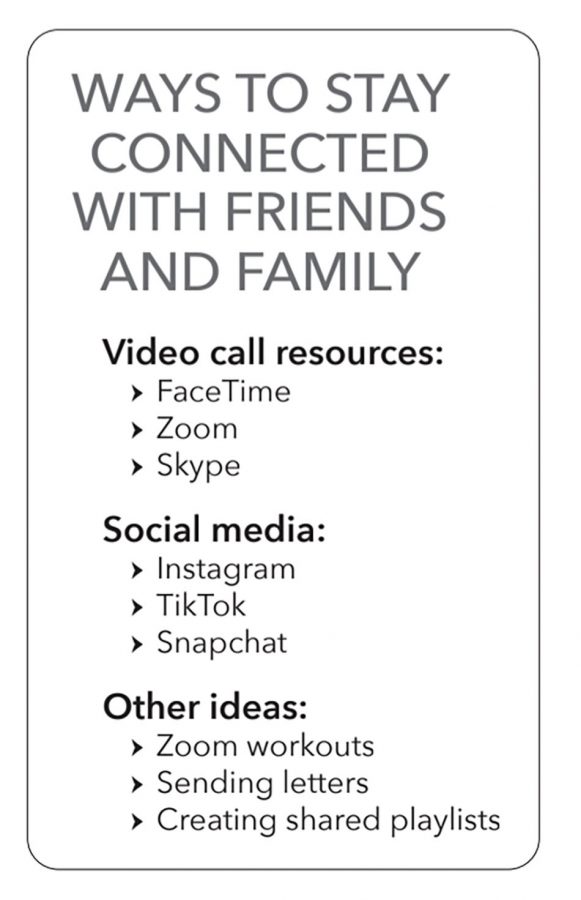Social isolation takes a toll on mental health
Having a lack of human interaction for students can lead to anxiety
Staying connected can be difficult but there are a multiple of online choices to help.
September 24, 2020
There were no excited voices filling Flood Mansion to start the year. Students instead began the year with an unenthusiastic click of a Zoom link and waited for class to begin.
With the City and County of San Francisco’s decision to keep high schools closed until at least November, classes remain online, leaving some students feeling isolated and deprived of any face-to-face social interaction during shelter in place.
“Teenagers’ brains are wired for socialization,” therapist and Licensed Clinical Social Worker Alissa Gunsberg said. “They are wired to be individualizing and relying more on peer relationships than ones with parents or family.”
Peer relationships may be harder to maintain when teens do not see their friends at school, and this sentiment resonates with sophomore Audrey Roomian as she considered the beginning of the school year.
“I feel less connected with people,” Roomian said. “Over the summer I didn’t really talk to as many friends as I would have liked to, and it kind of makes me feel worried for what it’s going to be like when we go back.’”
San Francisco is currently in the process of phasing in the reopening of TK-12 schools, provided they have a waiver from the country, according to a Sept. 28 directive from the Department of Public Health.
“Since the start of the quarantine period, event after event has been cancelled which has been really sad,” junior Olivia Williams said. “On top of that, we had to start a new school year online which created a lot of stress because we had to learn how to adapt to a new course load and schedule on our own.”
While students are tackling longer classes and more condensed coursework, Gunsberg urges parents to pay close attention to their children and seek professional help if they are worried about their child’s mental health.
“It’s always good for families to reach out to therapists if they notice something off,” Gunsberg said. “You can go to Psychologytoday.com and there is a whole list of therapists in the Bay Area and so many are offering Zoom meetings now.”
Students have been using social media platforms such as Snapchat and Instagram to remain connected with friends and family.
“We have been sending lots of text messages on big family group chats and FaceTiming each other when we get the chance,” Williams said about staying in contact with her family. “Social media has made it easier to be away from friends because it allows you to easily stay in touch with them and still talk on a regular basis.”
Gunsberg supports the attempts young people are making to reach out to one another through social media, saying it is developmentally appropriate to want to connect with people and find creative online outlets for that.
“Our brains are still wired like cavemen, so a teen’s brain is focused on going off and creating their own unit, which is why socializing is so important,” Gunsburg said. “When we isolate or self quarantine like we are doing now we’re not allowed to have those same interactions which is why you might be feeling a certain way.”










